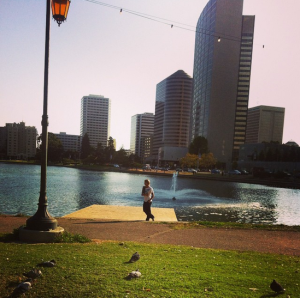On Opening Up Your Ribcage for Public Criticism
 One of the hardest parts about accepting that I feel compelled to write about my life, that I notoriously have quite low boundaries (upon hearing I didn’t want to finish a story because it was embarrassing, my friend Kane once said “Man, I have never heard you say that!”) and that I share said writing with anyone who fancies onto this blog isn’t the fact that my mom will learn things she’d rather not know; it’s that there are one hell of a lot of faceless naysayers out there, poised to pounce should for some reason I draw attention.*
One of the hardest parts about accepting that I feel compelled to write about my life, that I notoriously have quite low boundaries (upon hearing I didn’t want to finish a story because it was embarrassing, my friend Kane once said “Man, I have never heard you say that!”) and that I share said writing with anyone who fancies onto this blog isn’t the fact that my mom will learn things she’d rather not know; it’s that there are one hell of a lot of faceless naysayers out there, poised to pounce should for some reason I draw attention.*
The only time I’d drawn rageful comments was years ago when I worked for the now defunct Student Stuff, and offered criticism at advice written by a woman who turned out to be a very prominent blogger (and who was clearly on top of her Google Alerts). My editors were thrilled with the amount of engagement we tracked on that post. But me? I was in tears as people called me names, misinterpreted what I said, put words in my mouth, defended this beloved blogger – and didn’t seem to care that I felt horrible that I may have hurt someone else’s feelings.
The topic of those posts: advice for behavior at your first job.
Yeah. So, writing about dating had me a little concerned.
I bring all this up because back at the World Domination Summit I met a guy named Jeff while on a river cruise and found out he’d written an article that I’d actually tweeted about, You’ve Got Male: Amazon’s Growth Impacting the Seattle Dating Scene (because graphs! Dating! America!). Meeting someone who wrote a piece I found organically can feel like finding a unicorn, and I was excited to chat.
Our conversation swirled between writing and dating, and a more recent piece he’d penned came up: Shining Light on Cutoff Culture. We discussed the motives for why some people just stop speaking to others after a relationship, despite promises that they want to be friends, and what it does to the person who has been cutoff.
Honesty moment: I’ve been cutoff before. Someone who was the closest person to me, who I’d dated and who became a friend so close that best friend doesn’t begin to cover it, stopped communication with me. I had no warning. And after an email informing me (which in some respects seems lucky; at least he told me), I was granted a phone call to half-way discuss. And that was that.**
After talking to Jeff about what the cutoff feels like, I went back to my hotel, read his article and thought yeah man. Yeah. What I didn’t realize is what had happened to Jeff because of that piece. Basically, my worst writing fears came true: he was misinterpreted, misrepresented, and attacked.
Instead of coiling beneath his quilt with nary his bald head peaking out though, Jeff did basically the exact opposite: He wrote a follow up piece entitled Shining Light on Internet Rage in which he sat down, deeply researched exactly what was said about him and by whom (oy, how is that an exercise in remembering you love yourself?) and began piecing together why he’d hit a nerve – and offered a response to much of the kerfuffle.
All this interests me for a variety of reasons: first, I know Jeff a little. I met him, interacted with him, and therefore care about his well-being. Second, in any instant, any writer – myself included – could find themselves in his shoes. Third, it gave me pause to consider how I’d handle this situation myself: would I back down and shut up, or would I at least try to say something, knowing that it would likely create more backlash? And finally, it’s not that I agree with everything he’s written in any article (I do firmly believe in looking at everything critically to a degree) but he gets a lot about what it means to be human and the human experience right on the money.
Like this:
…A woman who had the awkward timing of going on dates with me before and after The Guardian article said that she had commented positively on it when friends shared it on Facebook without realizing it mentioned me. After our second date, she said that everything about her experience of me was the opposite of the article — and it made her question all the times she’s made assumptions about someone she read about online and how wrong she might have been. I hope we can all learn something from her experience…
Jeff’s article is a long read, but extremely worthwhile for anyone who writes or comments on the internet.
–
*Winner of the longest sentence of this post award!
**Second honesty moment: I’ve cut someone off (pretty recently). A female friend. I’d feel like a hypocrite not mentioning this; I also feel like I had my reasons that I’m not going to share here in this moment.

 Follow
Follow
You might want to read this piece on Reifman’s essay for further insights and excellent analysis of where he missed the mark:
http://www.doctornerdlove.com/2014/05/cutoff-culture-and-the-myth-of-closure/
Thanks for sharing this – certainly a well thought out critique.